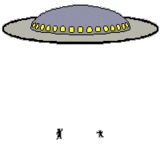What is Intellectual Property?
Intellectual property (IP) refers to creations of the mind: inventions, literary and artistic works, and symbols, names, images, and designs used in commerce.
Intellectual property is divided into two categories: Industrial property, which includes inventions (patents), trademarks, industrial designs, and geographic indications of source; and Copyright, which includes literary and artistic works such as novels, poems and plays, films, musical works, artistic works such as drawings, paintings, photographs and sculptures, and architectural designs. Rights related to copyright include those of performing artists in their performances, producers of phonograms in their recordings, and those of broadcasters in their radio and television programs. For an introduction to IP for non-specialists see:
Intellectual Property Rights (IP)
These are legal property rights over creations of the mind, both artistic and commercial, and the corresponding fields of law.[1] Under intellectual property law, owners are granted certain exclusive rights to a variety of intangible assets, such as musical, literary, and artistic works; ideas, discoveries and inventions; and words, phrases, symbols, and designs. Common types of intellectual property include copyrights, trademarks, patents, industrial design rights and trade secrets.
The majority of intellectual property rights provide creators of original works economic incentive to develop and share ideas through a form of temporary monopoly.
Although many of the legal principles governing intellectual property have evolved over centuries, it was not until the late 20th century that the term intellectual property began to be used as a unifying concept.
Intellectual property rights are a bundle of exclusive rights over creations of the mind, both artistic and commercial. The former is covered by copyright laws, which protect creative works, such as books, movies, music, paintings, photographs, and software, and give the copyright holder exclusive right to control reproduction or adaptation of such works for a certain period of time.[3]
The second category is collectively known as "industrial properties", as they are typically created and used for industrial or commercial purposes. A patent may be granted for a new, useful, and non-obvious invention and gives the patent holder a right to prevent others from practicing the invention without a license from the inventor for a certain period of time. A trademark is a distinctive sign which is used to prevent confusion among products in the marketplace.
An industrial design right protects the form of appearance, style or design of an industrial object from infringement. A trade secret is an item of non-public information concerning the commercial practices or proprietary knowledge of a business. Public disclosure of trade secrets may sometimes be illegal.
The term intellectual property denotes the specific legal rights described above, and not the intellectual work itself.




